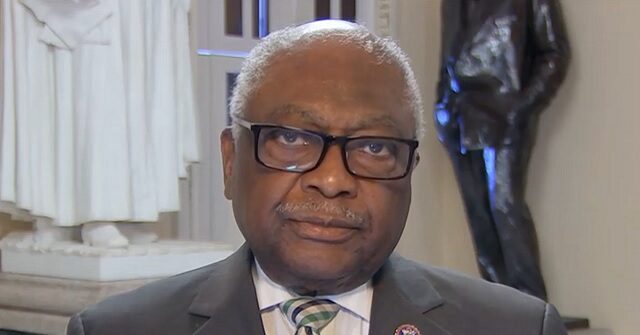During a recent appearance on CNN’s “State of the Union,” Representative James Clyburn expressed significant concern regarding the potential for black men to either support former President Donald Trump or abstain from voting in the upcoming elections. Clyburn’s remarks were prompted by comments made by Congresswoman Debbie Dingell, who indicated that many black men feel the Democratic party takes them for granted while Trump engages with them more directly. Clyburn acknowledged this sentiment, emphasizing the need for the Democratic party to actively address the concerns of black men to secure their votes.
Despite his concerns, Clyburn remains optimistic and committed to energizing the Democratic campaign. He highlighted his recent campaign efforts in Michigan alongside Dingell, where he engaged with black men and religious and union leaders to discuss their needs and expectations from the Democratic administration under President Biden and Vice President Harris. Clyburn believes that open, honest communication is essential for understanding and addressing the perspectives of black men within the Democratic agenda. He noted that the discussions he had were candid, reflecting the urgency of addressing the issues that matter to this demographic.
One critical point Clyburn raised is the need for a clear vision for what the black community can anticipate from a Harris administration. He articulated the imperative for Democrats to present a concrete plan that resonates with black voters, contrasting it with what they could expect from a Trump administration. Clyburn has voiced concerns about Trump’s “Project 2025,” which he believes poses a significant threat to the civil rights advancements made in the past. He described this agenda as reminiscent of Jim Crow laws, suggesting that it would lead to regression in civil rights and voting protections for minorities.
Clyburn’s focus on the importance of outreach underscores the potential impact of voter turnout in the upcoming elections. He contended that while some black men may feel disillusioned with the Democratic party, it is crucial for Democrats to recapture their trust by directly addressing their issues. The discussions Clyburn has had with key community leaders are part of a larger strategy to ensure that the concerns of black voters are integrated into the party’s overall platform and messaging.
As the campaign progresses, Clyburn emphasizes the urgency of mobilizing black voters and fostering enthusiasm for the Democratic ticket. He insists that the Democratic party must demonstrate its commitment to addressing systemic issues while providing tangible solutions. Clyburn’s message is clear: to prevent a potential fracture in support among black men, Democrats must actively engage and reassure these voters that their interests are paramount within the party’s agenda.
Overall, Clyburn’s candid insights reflect a broader concern within the Democratic party about voter engagement and the potential influence of Trump’s appeal to black men. As the political landscape evolves, the need for strategic outreach to disenfranchised voter groups becomes increasingly critical for Democrats aiming to fulfill their electoral objectives and ensure continued progress on civil rights issues.

